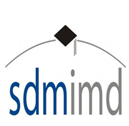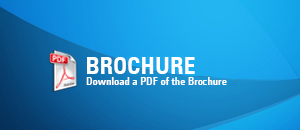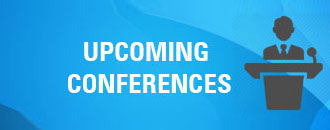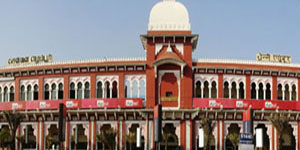Global Business Research Journals
Online International (Double-Blind Peer Reviewed) Research Journals
CONFERENCE ANNOUNCEMENT
Call for Papers!
Fourth Asia-Pacific Conference on Global Business, Economics, Finance and Social Sciences
AP15 Malaysia Conference
Theme: FINANCIAL INCLUSION! The Road Map!!
Conference Dates: August 7-9, 2015
Venue: GTower Kuala Lumpur , 199 , Jalan Tun Razak , 50400 Kuala Lumpur, Malaysia.
ISBN - 978-1-63415-762-9
INVITED LECTURES
Keynote Speaker
Date : 7th Aug 2015, 9.40 am – 10.00 am
Venue : Hotel GTower Kuala Lumpur, Kuala Lumpur, Malaysia.
Topic : "Efficiency of firms: Implications for Malaysia"
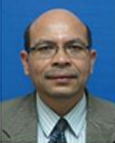
Dr. Mohd Zaini B Abd Karim,
Department of Economics,
Universiti Utara Malaysia,
Malaysia.
Invited Lecture 1
Date : 8th Aug 2015, 10.15am – 10.45am
Venue : Hotel GTower Kuala Lumpur, Kuala Lumpur, Malaysia.
Topic : "Emerging Trends in Research Practices"
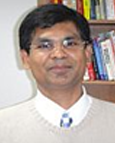
Prof. Sugumaran Narayanan,
Midwestern State University,
United States of America.
Invited Lecture 2
Date : 8th Aug 2015, 10.45am – 11.15am
Venue : Hotel GTower Kuala Lumpur, Kuala Lumpur, Malaysia.
Topic : "Executive Compensation: Trends and Legislation"

Prof. Lee Mick Swartz,
University of Southern California,
United States of America.
Panel Discussion
7th August 2015, 1.30 pm to 2.15 pm
Topic : "Ensuring Academic Integrity and Preventing Plagiarism"
- The Role of an Academician!!
Experts
Dr. Ullas Rao,
SDM Institute for Management Development,
India.
Dr. Ma. Riza Manalo,
University of Negros Occidental-Recoletos,
Philippines.
Dr. Shuo YAN,
Bocconi University,
Italy.
Dr. Mei Foong Wong,
Tunku Abdul Rahman University College,
Malaysia.
Moderator
Dr. Elango Rengasamy,
The British University in Dubai,
Dubai, UAE.
Dear & Esteemed Colleagues,
Warm greetings!
Global Business Research Journals (GBRJ) & SDMIMD, Mysore, Karnataka State, India are delighted to announce their Fourth Asia-Pacific Conference on Global Business, Economics, Finance and Social Sciences which will be held from August 7-9, 2015 in Kula Lumpur, Malaysia.
You are cordially invited to submit your research manuscripts/case studies in all areas of research in business discipline. In addition to paper presentations and discussions, the Conference will include invited lectures on contemporary topics in emerging trends in Global Business, Economics, Finance, Financial Inclusion and Social Sciences.
Important Dates!
| Abstract / Full Paper Submission Deadline | : |
| Last Date for Registration | : |
| Conference Dates | : August 7-9, 2015 |
Conference Objectives!
Financial Inclusion!
It is, indeed, heartening to note that 2.5 billion people are impoverished in the world and should be included in the banking network to be lifted out of poverty. Undoubtedly, delivery of the much-needed financial services at an affordable cost to this disadvantaged section is of paramount importance.
‘Financial inclusion’ is quite important as the unbanked and poor segment of the global population suffer from the following social malaises. Among others, the problems include high transaction costs of banks, high risks of default owing to hidden costs, financial products that are not according to the requirements of the people under poverty. For instance, in Sub-Saharan Africa, only 24% of adults have bank accounts (Geoffrey Muzigiti, Oliver Schmidt, ‘Moving Forward’ (January 2013).
Reaching the Most Excluded!
Throughout the world, a large segment of the population still suffers from many social issues and problems and they need support from banking and financial institutions for improving their livelihood. They include marginal farmers, landless farmers, women, unemployed, minorities, urban slum-dwellers, socially excluded groups, migrants and senior citizens. All these people should be brought to the banking net and active financial support should be extended to for betterment and well-being.
UN’s Mission
The term “financial inclusion” has gained importance since the early 2000s, as a result of research findings about financial exclusion and its direct correlation to poverty. The United Nations defines the goals of financial inclusion as follows:
( http://aid.dfat.gov.au/Publications/Documents/financialservices-fullstrategy.pdf):
• Access at a reasonable cost for all households to a full range of financial services, including savings or deposit services, payment and transfer services, credit and insurance;
• Sound and safe institutions governed by clear regulation and industry performance standards;
• Financial and institutional sustainability, to ensure continuity and certainty of investment; and
• Competition to ensure choice and affordability for clients.
Former United Nations Secretary-General Kofi Annan, on 29 December 2003, said: “The stark reality is that most poor people in the world still lack access to sustainable financial services, whether it is savings, credit or insurance. The great challenge before us is to address the constraints that exclude people from full participation in the financial sector. Together, we can and must build inclusive financial sectors that help people improve their lives” . More recently, Alliance for Financial Inclusion (AFI) Executive Director Alfred Hannig highlighted on 24 April 2013 progress in financial inclusion during the IMF-World Bank 2013 Spring Meetings: "Financial inclusion is no longer a fringe subject. It is now recognized as an important part of the mainstream thinking on economic development based on country leadership."
In this scenario, the upcoming conference aims at achieving the following objectives:
1. Creating awareness and devising suitable measures for promoting ‘financial inclusion’ with the support from banks and financial institutions;
2. Identifying suitable methods to broaden financial services to the poorest segment of the society and break down barriers in order to pave way for their participation in economic activities;
3. Developing strategies to lay down a roadmap and increase consumer access to deposits and lending, payment and transfer services for improving their standard of living;
4. Suggesting measures to make use of the internet and the modern technology in poverty alleviation and social upliftment so that every global citizen will live in peace and harmony.
OUR PRINCIPAL ACADEMIC PARTNER:
Shri Dharmasthala Manjunatheshwara Institute for Management Development (SDMIMD) Mysore, Karnataka
Shri Dharmasthala Manjunatheshwara Institute for Management Development (SDMIMD), ranked among the top Business Schools in India, is located at the foot of Chamundi Hills in the heritage city of Mysore, Karnataka. The campus has won many architectural and landscape awards and provides a great environment for learning and germination of managerial intellect. The institute has been conferred A** Rating at National Level by CRISIL.
The institute is promoted by the Shri Dharmasthala Manjunatheswara Educational Trust - a premier non-profit educational organisation functioning under the aegis of Shree Kshetra Dharmasthala, which is known for its unique embodiment of Dharma. Today, SDME Trust has more than 40 recognised educational institutions under its wings, imparting quality education from the primary level to the postgraduate level. Trust is known for the professional institutions in Medical, Dental, Engineering, Naturopathy, Ayurveda, Law, Business Management and Physiotherapy. The trust and all the associate institutions benefit from the visionary leadership of our Chairman, Padma Bhushan Dr. D. Veerendra Heggade, Dharmadhikari of Dharmasthala.
SDMIMD’s AICTE approved PGDM programme, accredited by NBA, runs for six terms over two years with an impeccable track record of academic rigor. SDMIMD also has Student Exchange Programs with the MAYS School of Business, Texas A&M; University, USA; Global Management Institute of Shanghai University, China; and British University in Dubai, Dubai. These student exchange programmes enable students to understand each other’s cultures, business practices and traditions. This gives students an edge when it comes to international opportunities.
The SDMIMD’s research unit - SDM Research Centre for Management Studies’ (SDM RCSM), publications ‘Cases in Management’, ‘Contemporary Research in Management’, ‘Excerpts of Select Summer Internship Reports’, have come in for praise from the world of academics. The institute’s journal ‘SDMIMD Journal of Management’ indexed in EBSCO and iScholar has evolved as a prestigious publication well known for the quality of the papers, therein.
To know more about SDMIMD please visit: www.sdmimd.ac.in
